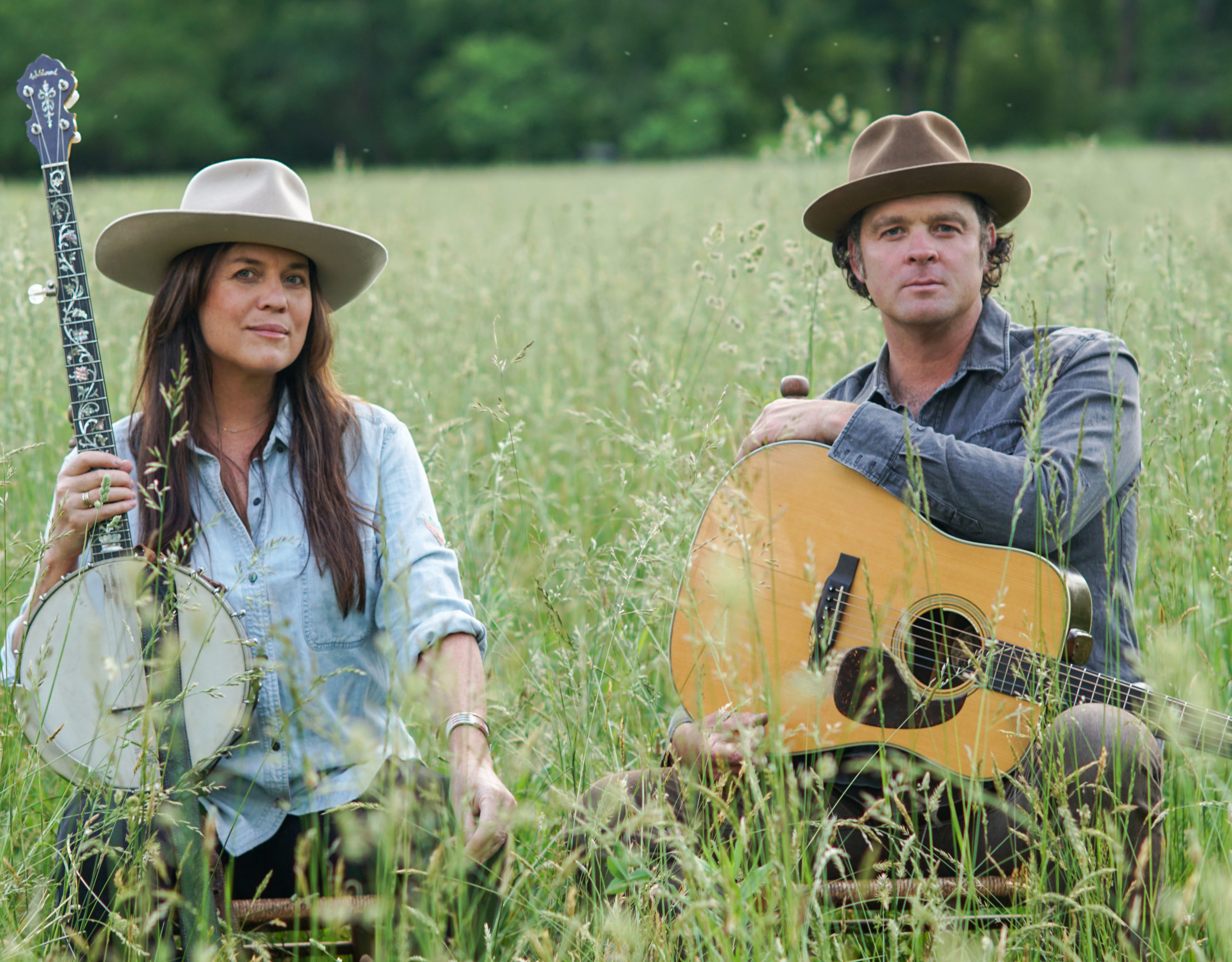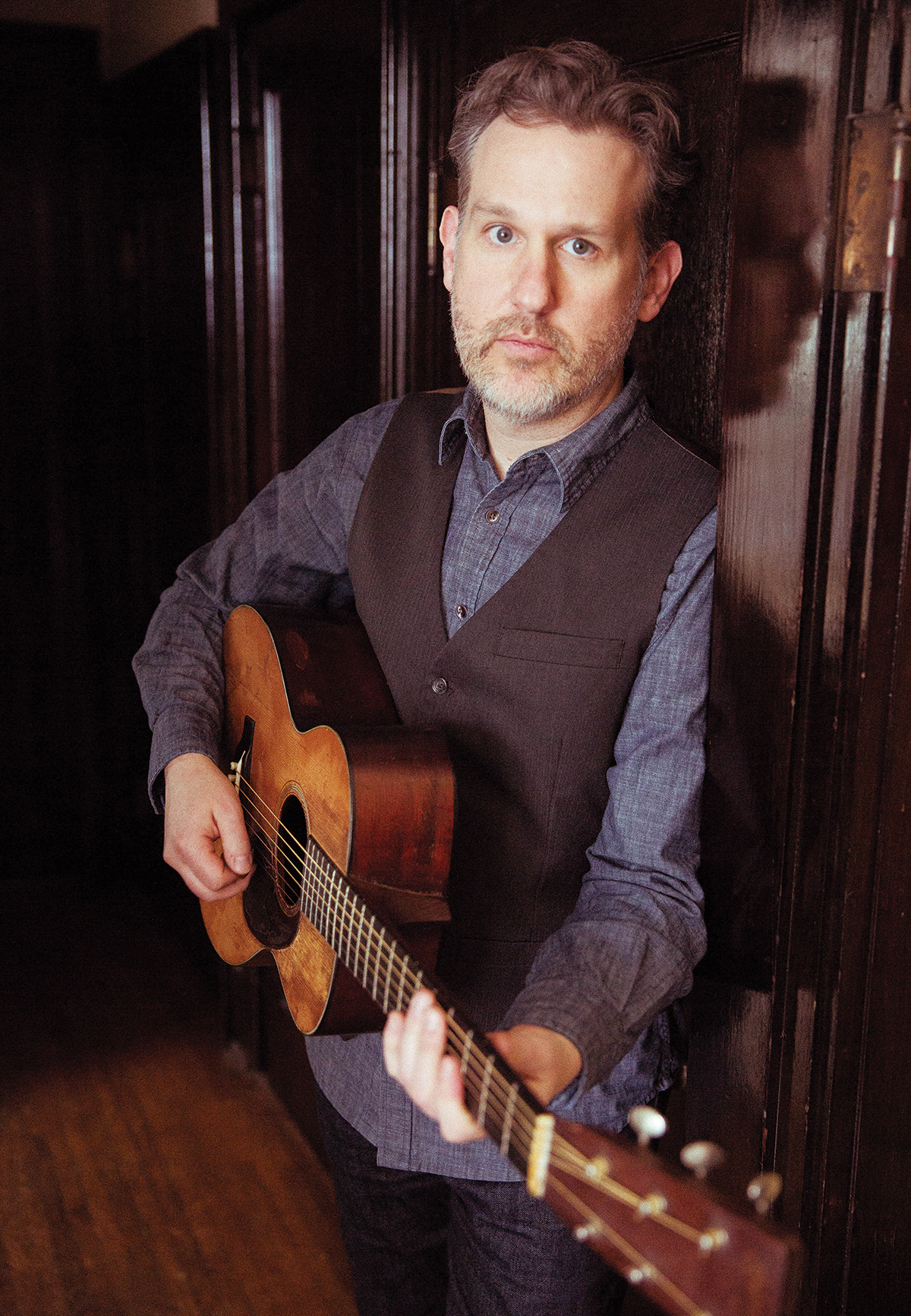
Gillian Welch and David Rawlings at the Filmore Theater. Photo by Paxton X
Gillian Welch doesn’t hurry. Revival, her first disc, dropped 20 years ago. Between that day and today, we’ve experienced three polarizing presidents, 9/11 and other apocalyptic losses of innocence, a technological new world order, and bacon-flavored ice cream.
And yet, atmospherically speaking, her song remains the same. Folkloric melodies of betrayal, desolation, violence, addiction, and murdered love are delivered in a bony timbre, as weighted with omen as a slow river being dredged for bodies.
From the gate, Welch’s exquisite vocal harmonies with her partner David Rawlings, her clawhammer banjo entwined with his masterful flat-picked guitar, established a lurking dominance. The two met at Boston’s Berklee College of Music in the early ’90s, and the musical and personal bond happened fast.
Their vibe feels spooned from another lifetime. Two voices sound like a lone strummed string.
“What we do, I think, is really in a kind of pioneer spirit,” Welch tells Bold Life. She talks about the duet singing of the ’30s and ’40s, before the bombastic, look-at-me tide of rock rolled in and “subsumed everything.”
The couple’s loyalty to retro style is threaded all through their actions. Fans know they put just ten songs apiece on their CDs: the menu of any classic vinyl record. “I decided the perfect length of an album is 42 minutes,” says Welch. Just because “compact discs” — she pointedly uses the whole term — can contain more songs, that doesn’t mean they should.
“Seventy minutes of music on one record? That’s absurd.”
The Nashville-based couple has a heartfelt following in Western North Carolina. “I always feel so understood in that part of Appalachia,” says Welch. “It’s where we first got recognition. We would play house parties and people would say, ‘God, I haven’t heard that song in 30 years.’ I always felt like we must have the same record collections.”
But pulling so heavily from Appalachian traditions on her first two albums made Welch a target. She grew up in southern California, where her adoptive parents produced the Carol Burnett Show. Some reviewers smirked to hear a Hollywood surfer girl crooning about the travails of dirt farming and moonshine intoxication. Authenticity was the imperiled notion, and music writers buttered its importance like an artisan biscuit.
And yet Welch’s birth origins, plus, more obliquely, her rather frail, haunted appearance, were interesting enough to surpass the privileged upbringing. She was born in 1967 to a teenaged mother whose own birth documents suggested a hometown in Southern Appalachia; Welch’s biological father was a never-identified traveling musician. (Bluegrass pioneer Bill Monroe is a favorite guess.)
Eventually, her evolving canon turned into its own truth. The epic title track to Welch’s third album, Time (The Revelator), acknowledges the naysayers — “Darling, remember, when you come to me/I’m the pretender, and not what I’m supposed to be” — and scales to a chill-inducing guitar solo courtesy of Rawlings. Two years later, on Soul Journey, her bounciest effort, Welch embraced electric instrumentation and moments of openly biographical material.
But she has a tendency to leave fans hungry. Not counting her appearances on her partner’s intermittent discs with his band The David Rawlings Machine, plus her collaborations with everyone from Emmylou Harris to Mark Knopfler to Elvis Costello to Conor Oberst, she has only five full albums in her discography. The interval between Soul Journey and her last disc, The Harrow & The Harvest, was a career-bruising eight years — a dry spell that made her followers sad and her critics snarky. (Welch and Rawlings have both blamed writer’s block.)
When Harrow did arrive, in 2011, it was worth the wait. As ever, it’s hard to tell when the lyrics are personal or allegorical, but the mournful beauty never fails: “Dark Turn of Mind,” “Hard Times.” The album stunner is “The Way It Will Be,” a bitter, smoldering breakup tale that was making audiences gasp long before Welch and Rawlings committed it to tape.
This June marked five years since the release of Harrow — another artistic drought. Still, the duo continues to tour throughout North America and overseas, to destination festivals including MerleFest, Coachella, and the Cambridge Folk Festival. They’ve played the Grand Ole Opry and the Fillmore. Last fall, Welch and Rawlings received the Lifetime Achievement Award for Songwriting from the Americana Music Association.
“We never step away from our work,” she says with a note of apology. “We’re not away on vacation somewhere.”
She knows fans are getting restless for a new record, though. “I’m getting restless, too,” she says. But she won’t alter her process under pressure — with her and Rawlings, it’s all about the slow build.
Welch mentions the recent deaths of two of her heroes — bluegrass icon Ralph Stanley and Texas singer/songwriter Guy Clark — and burns about the “devaluation” of songs under the digital takeover.
“People don’t hardly pay for music anymore. There’s no actual record of a life’s work.”
One day, she’ll put the pain to music — but it won’t be rushed.
“It all affects me,” she says. “But it typically takes a while for events to filter down to my songwriting. It’s like rainfall filtering through volcanic ash … it doesn’t hit the aquifer for five to ten years.”
Brevard Music Center and Mountain Song Productions present “An Evening With Gillian Welch” Friday, August 19, 8pm. $20-$40. Visit brevardmusic.org for tickets.



